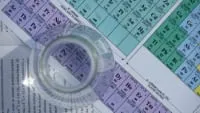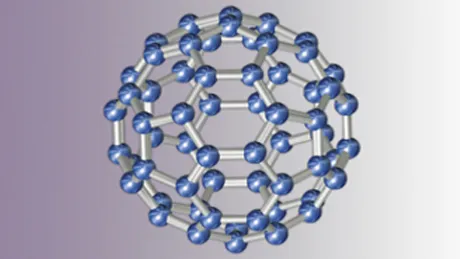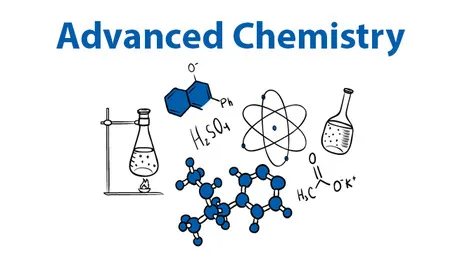
Basic Concept of Chemistry Part 2 
This course is a continuation of Basic Concept of Chemistry Part 1. It covers topics such as atomic structure, average atomic mass of an element, element compounds and mixtures, and pure and impure matter. Students will learn about the structure of atoms, how to calculate average atomic mass, and the differences between pure and impure matter. This course is essential for anyone looking to gain a better understanding of chemistry. ▼
ADVERTISEMENT
Course Feature
![]() Cost:
Cost:
Free
![]() Provider:
Provider:
Udemy
![]() Certificate:
Certificate:
No Information
![]() Language:
Language:
English
Course Overview
❗The content presented here is sourced directly from Udemy platform. For comprehensive course details, including enrollment information, simply click on the 'Go to class' link on our website.
Updated in [May 25th, 2023]
Chemistry is a fascinating and important field of study that can provide learners with a wealth of knowledge and understanding. In this course, learners will gain an understanding of the basic concepts of chemistry, including atomic structure, average atomic mass of an element, element compounds and mixtures, and pure and impure matter.
Learners will gain an understanding of the structure of atoms, including the number of protons, neutrons, and electrons, and how these components interact to form different elements. They will also learn about the average atomic mass of an element, and how it is calculated. Additionally, learners will explore the differences between element compounds and mixtures, and how to identify pure and impure matter.
By the end of the course, learners will have a comprehensive understanding of the basic concepts of chemistry, and be able to apply this knowledge to their everyday lives. They will also be able to identify and explain the differences between element compounds and mixtures, and understand the importance of pure and impure matter. Furthermore, learners will be able to calculate the average atomic mass of an element, and use this knowledge to make informed decisions.
[Applications]
After completing this course, students should be able to apply the concepts of atomic structure, average atomic mass of an element, element compounds and mixtures, and pure and impure matter to their everyday lives. For example, they can use the knowledge of atomic structure to understand the properties of different elements and compounds, and the knowledge of element compounds and mixtures to understand the composition of different materials. Additionally, they can use the knowledge of pure and impure matter to understand the differences between different types of materials.
[Career Paths]
1. Chemist: A Chemist is a scientist who studies the composition, structure, and properties of matter. They use their knowledge to develop new products and processes, improve existing products, and solve problems. Chemists are involved in research, development, and production in a variety of industries, including pharmaceuticals, food and beverage, energy, and environmental protection. As technology advances, the demand for chemists is expected to increase.
2. Chemical Engineer: Chemical Engineers use their knowledge of chemistry, physics, and mathematics to design, develop, and optimize processes for the production of chemicals, fuels, and other products. They are involved in research, development, and production in a variety of industries, including pharmaceuticals, energy, and environmental protection. As technology advances, the demand for chemical engineers is expected to increase.
3. Environmental Scientist: Environmental Scientists use their knowledge of chemistry, biology, and ecology to study the environment and develop solutions to environmental problems. They are involved in research, monitoring, and management of natural resources, and are often employed by government agencies and private companies. As environmental concerns become more pressing, the demand for environmental scientists is expected to increase.
4. Quality Control Technician: Quality Control Technicians use their knowledge of chemistry and laboratory techniques to ensure that products meet quality standards. They are involved in testing, inspecting, and analyzing products to ensure that they meet safety and quality requirements. As technology advances, the demand for quality control technicians is expected to increase.
[Education Paths]
1. Bachelor of Science in Chemistry: This degree program provides students with a comprehensive understanding of the fundamentals of chemistry, including topics such as atomic structure, chemical reactions, and thermodynamics. Students will also gain an understanding of the principles of laboratory techniques and instrumentation. This degree is ideal for those interested in pursuing a career in the chemical industry, research, or teaching. Additionally, the degree provides a strong foundation for those interested in pursuing a graduate degree in chemistry.
2. Bachelor of Science in Biochemistry: This degree program focuses on the study of the chemical processes that occur within living organisms. Students will gain an understanding of the structure and function of proteins, carbohydrates, lipids, and nucleic acids. Additionally, students will learn about the biochemical pathways that are responsible for the production of energy and the regulation of metabolism. This degree is ideal for those interested in pursuing a career in the medical field, research, or teaching.
3. Master of Science in Chemistry: This degree program provides students with an advanced understanding of the fundamentals of chemistry, including topics such as organic chemistry, physical chemistry, and analytical chemistry. Students will also gain an understanding of the principles of laboratory techniques and instrumentation. This degree is ideal for those interested in pursuing a career in the chemical industry, research, or teaching. Additionally, the degree provides a strong foundation for those interested in pursuing a doctoral degree in chemistry.
4. Doctor of Philosophy in Chemistry: This degree program provides students with an in-depth understanding of the fundamentals of chemistry, including topics such as organic chemistry, physical chemistry, and analytical chemistry. Students will also gain an understanding of the principles of laboratory techniques and instrumentation. This degree is ideal for those interested in pursuing a career in the chemical industry, research, or teaching. Additionally, the degree provides a strong foundation for those interested in pursuing a career in academia.
Course Syllabus
Atomic Structure
Elements Compounds and Mixture
Pros & Cons

Clear explanation of basic chemistry.

Comprehensive coverage of chemistry topics.

Easy to understand concepts.

Useful for beginners.

Valuable learning resource.

Limited scope of topics.

Not suitable for advanced learners.

May not cover all topics in depth.

Not enough practice exercises.

May not be suitable for all learning styles.
Course Provider

Provider Udemy's Stats at AZClass
Discussion and Reviews
0.0 (Based on 0 reviews)
Explore Similar Online Courses

Preparing for the AP* Computer Science A Exam Part 1

SEO Made Simple: Free SEO Mini Course for Beginners

Python for Informatics: Exploring Information

Social Network Analysis

Introduction to Systematic Review and Meta-Analysis

The Analytics Edge

DCO042 - Python For Informatics

Causal Diagrams: Draw Your Assumptions Before Your Conclusions

Whole genome sequencing of bacterial genomes - tools and applications

General Chemistry: Concept Development and Application

Advanced Chemistry

Free Chemistry Tutorial - Chemistry 101 - Chemistry in Society
 Related Categories
Related Categories
 Popular Providers
Popular Providers
Quiz
 Submitted Sucessfully
Submitted Sucessfully
1. What is the average atomic mass of an element?
2. What is an impure matter?
3. What is a pure matter?


Start your review of Basic Concept of Chemistry Part 2